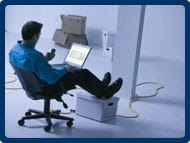Cleveland Chapter 11 Bankruptcy Attorneys

.
Tennessee Business Bankruptcy Lawyers
In these challenging economic times, many businesses throughout Tennessee and North Georgia face financial problems as a result of reduced sales and reduced profits, as well as tax issues. Chapter 11 bankruptcy is designed specifically with the needs of businesses and professionals in mind. Through this type of bankruptcy, you are able to reorganize your debts. In most cases, businesses can continue to operate as long as they generate enough revenue to meet the financial obligations established in the Chapter 11 reorganization plan.
Since 1974, the attorneys at the law firm of Richard Banks & Associates have been representing small businesses and professionals with their own practices, such as doctors and dentists. We also assist farmers with Chapter 12 bankruptcy.
Keeping The Doors Open
Businesses with overwhelming debt face a variety of dangers, including threats of foreclosure and repossession of company cars or business equipment. As soon as Chapter 11 is filed, these threats must stop. All collection actions creditors have threatened or initiated must stop. Creditor harassment must stop. All of the distractions that have taken your mind off operating your business must stop, freeing you to do what it takes to keep the doors open.
Representation From A Board-Certified Bankruptcy Specialist
When you choose our law firm, your case will be led by board-certified bankruptcy specialist Richard L. Banks. Considering how unique and complex Chapter 11 bankruptcy is, it is important that you have proof that your attorney has the depth of knowledge necessary to guide you through the process. Board certification is that proof.
Contact Us For A Free Initial Consultation
Call us toll free at 866-596-8527, or send us an e-mail to talk about debt consolidation with an experienced Cleveland Chapter 11 bankruptcy lawyer.

